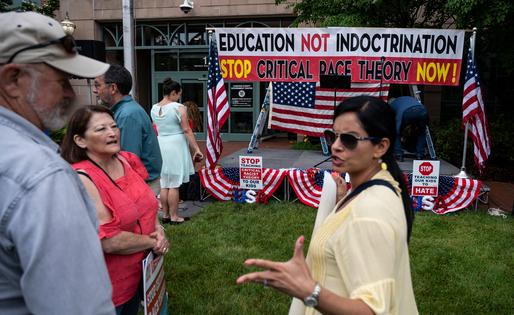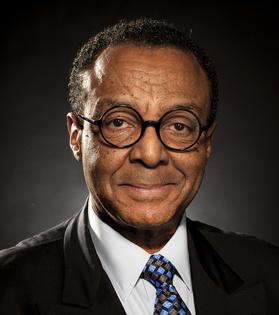Can the Left Defend Critical Race Theory? Or Merely Oppose Its Critics?
A national panic mostly from conservatives over critical race theory — erupting perhaps in a state legislature, university or school board meeting near you — triggers spirited counterpunches from its left-progressive defenders.
But are they defending CRT, I have to ask, or merely attacking its opponents?
I’m talking about myself, among others. Since the mid-1990s I occasionally have discussed and debated its pluses and minuses with lawyers, professors who know what CRT really is. Before it became a straw man for conservatives, activists, pundits and politicians to knock down, it was a pretty narrow field of intellectual study for law school students and professionals.
But in the wake of the social justice movements kicked up by George Floyd’s murder, it has provided something to the political right that their efforts to demonize President Joe Biden have not: A vague yet menacing issue that they can use to scare white folks in particular into voting Republican — and, they hope, help the Grand Old Party retake control of Congress.
“This is the Tea Party to the 10th power,” Donald Trump’s former adviser Steve Bannon told Politico in an interview. “And a lot of these people aren’t Trump voters.”
CRT, in short, is an academic framework for looking at racism as systems, not an individual flaw. Contrary to the panic about a need to ban it from public schools, it actually is taught almost entirely in law schools. As one scholar is said to have told a parent who suspected it was being taught to her child, “Congratulations! I didn’t know your child was already in law school.”
But is it enough, I have to ask myself, that I push back against this tide with something so humble as facts?
With that, I wonder whether I am sounding like the sort of CRT critic that Damon Linker, senior correspondent for The Week and author of books on the intersection of faith and politics, described in an essay headlined, “The left is anti-anti-Critical Race Theory.”
Many of the left’s most intelligent writers, he argues, are reacting to the anti-CRT movement with loud opposition to its conservative opponents without bringing up their own reservations about the excesses of the pro-CRT movement.
The “anti-anti-CRT,” as he somewhat awkwardly calls them, are making a mistake as big as “the folly” of Republicans who became “anti-anti-Trump in order to avoid calling out the obscenity of the man himself.”
He makes a good point. I am a strong enough believer in the Constitution to appreciate how, despite what some have called its “birth defect” of slavery, its text also contains the mechanism through the amendment process for its improvement.
And there are intelligent ways to improve the document as well as self-defeating ways. CRT scholars tend to call attention to those historical flaws to undermine other American values that I would just as soon leave alone.
For example, leading CRT scholars such as Richard Delgado and Jean Stefancic in their book, “Must We Defend Nazis? Why the First Amendment Should Not Protect Hate Speech and White Supremacy,” argue for curtailment of “dangerous” speech. I don’t have to be a legal scholar to believe that’s a very dangerous idea.
But I also know, after listening to the alarm of parents and others, that I’ve been missing the deeper message in their protests: A lot of white people, in particular, have grown weary and resentful of being called racist and having the history and mainstream culture of their country attacked and demeaned.
They need to hear straightforward answers such as the one Army Gen. Mark Milley, chairman of the Joint Chiefs of Staff, forcefully delivered after Republican congressmen in a budget hearing accused the Army of forcing studies in “white rage” and “critical race theory” at West Point military academy.
“I do think it’s important, actually, for those of us in uniform to be open-minded and to be widely read. And the United States Military Academy is a university, and it is important that we train and we understand.
“And I want to understand white rage. I’m white, and I want to understand it. What is it that caused thousands of people to assault this building and try to overturn the Constitution of the United States of America. What caused that? I want to find that out.”
Indeed, like good managers across the nation, Milley recognizes that, in order to develop leaders and accomplish their missions, leaders in the military need to understand not only the enemy but the diversity of the people whom they have been chosen to lead.
========
(E-mail Clarence Page at cpage@chicagotribune.com.)
©2021 Clarence Page. Distributed by Tribune Content Agency, LLC.
(c) 2021 CLARENCE PAGE DISTRIBUTED BY TRIBUNE MEDIA SERVICES, INC.










